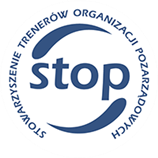Tactile & colourful maps for blind and visually impaired people
Target group:
- to enable spatial orientation and to build correct spatial imagination necessary for safe and independent functioning,
- to raise their level of knowledge about Poland, Europe and the world in order to reduce the gap between people with visual disability and other people and to improve their position in social interaction, to give them a chance for better relationship with the seeing world,
- to make it easier for them to learn school subjects, such as geography, history etc.
Historical information
Then in 1983 the Head Geodesy and Cartography Office began a cooperation with The Polish Association of the Blind with the aim to produce a series of maps in thermal-vacum technology.
Map of cultural treasures in Poland
Good practice – description
- Maps are accessible for blind and partially sighted people simultaneously
- They enable cooperation between a student with visual disability and their seeing teacher or parent
- Can be used individually by the blind and visually impaired thanks to universal rules and principles
- It is a resulat of a dialogue between the authors and the recipients
Recommendation for implementation/ dissemination
The right upper corner of each map is sheared, which helps to identify the position of the map.
The names are abbreviated and preceeded by appropriate „key”Towns – a two-letter abbreviation
Rivers and Lakes – a one-letter abbreviation
For more information please contact:
Fundacja Polskich Niewidomych i Słabowidzących „Trakt”
Al. Bohaterów Września 9 lok. 104
00-973 Warszawa
tel. 0 22 576 18 79
fax: 0 22 576 18 78
fundacja@trakt.org.pl
www.trakt.org.pl
Source:
Olczyk, M., (2014) The rules of developing tactile maps for blind and visually impaired




